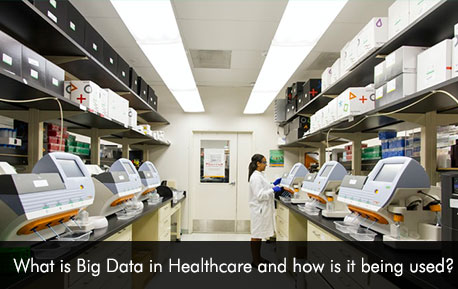Big data in healthcare seems promising to reduce costs and enhance patient outcome levels. Big data in healthcare means the vast quantities of data from the mass implementation of digitization of all sorts of data which also includes health records. Through big data technologies, healthcare organizations can analyze all the data to help provide valuable insights. Through the consolidation of data, organizations can discover trends and provide better treatment to patients. Data being useful also helps doctors to make more accurate predictions. Big data in healthcare is the major cause of the new MACRA requirements around Electronic Medical Records (EMR) and EHR software solutions.
Big data is already being used in the healthcare sector
Here are a few examples of how big data is being applied in the healthcare sector to improve care delivery and patient outcome levels.
- Accurate diagnosis and health tracking – Through big data and data mining clinicians can provide a precise treatment plan for each patient. Big data and analytics have transformed the way one can track vitals and user statistics. With sensor data collection on-going monitoring of body vitals, patients can identify health issues before it gets too late.
- Reducing errors – Prescription errors are a grave issue in the United States and it is reported by the Network for Excellence in Health Innovation that 7 million people are affected due to these errors which results in 7,000 casualties. Big data technology can catch errors before they occur and as a result, save money and lives.
- Improved patient care – Data and information gathered from big data helps physicians to have better and deeper insights regarding patterns. Better decision making through big data reduces the need to guess and enhance overall patient care. For example, Mayo Clinic is using big-data analytics to identify patients having multiple conditions. Big data can also be used to identify high-risk patients which helps patients have more control over their health.
Big data is the future of healthcare
Big data is already improving healthcare delivery and have seen improvements in the following areas of healthcare,
- Curing diseases and harmful conditions
- Early preventive care
- Detect warning signs earlier
- Quality of life gets better
- Increase preventive care
The challenges
A big challenge associated with big data is prioritization and sorting of information. Sometimes it becomes difficult to determine and identify the data points that will be valuable because of vast data capacities. Due to this reason many healthcare organizations use AI and machine learning to process this vast data. Soon, big data will be the key ingredient for organizations to succeed with improved diagnosis, higher efficiencies, and a reduction in costs.







